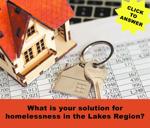Key Takeaways
A new online calculator helps younger adults forecast their future heart risk
The calculator looks ahead 30 years, based on a person’s current health readings
It shows how many people out of 100 have better heart health, and how many have worse
TUESDAY, Nov. 18, 2025 (HealthDay News) — Usually, it’s not until late middle age that folks start worrying about heart disease.
But a first-of-its-kind online calculator is now available to help adults as young as 30 forecast their risk of heart problems decades out, researchers reported Nov. 17 in the Journal of the American College of Cardiology.
This tool will help younger adults approach their heart health with the same attitude as dropping money into a company 401(k), researchers said — the sooner you start, the better off you’ll be.
“We don’t want to wait until it is too late, and someone has had an event” like a heart attack or stroke, senior researcher Dr. Sadiya Khan, a professor of cardiovascular epidemiology at Northwestern University Feinberg School of Medicine in Chicago, said in a news release.
“Consider it like saving for retirement,” Khan said. “We have to start now.”
A person in their 30s with a low immediate risk of heart attack or stroke could still have a high risk over three decades, researchers said. Previous studies have shown that one in seven young adults at low short-term risk are actually at high risk over 30 years.
The new tool, called the PREVENT Risk Percentiles Tool, judges a person’s 30-year heart risk using common measures like blood pressure, cholesterol, smoking status, diabetes history and kidney function.
The calculator displays their percentile rank among 100 peers of the same age and sex, showing how many people out of 100 would be more likely or less likely to develop heart problems than the person taking it.
For example, a person with a 30-year heart risk around 15% would be in the 75th percentile — 75 people out of 100 would have lower risk, and 25 would have higher risk.
“We are all used to percentiles for standardized testing or when checking our children’s growth charts,” Khan said. “But this is the first time percentiles have been translated and applied to long-term risk for heart disease.”
“When a patient sees they are in the 90th percentile, we hope that this will serve as a wake-up call that risk starts early and prevention efforts and activities can reduce that risk and should not be put off,” Khan said.
Researchers developed the tool based on data from nearly 8,700 participants in a long-term health survey conducted by the U.S. Centers for Disease Control and Prevention (CDC).
Using equations developed by the American Heart Association, the team calculated each person’s risk of developing a heart attack, heart failure or stroke over the next 30 years.
Testing showed that men had higher long-term risk than women at every age. For example, at age 45 men had a median 16% risk versus 10% for women.
However, Khan noted that “risk for heart disease for women catches up with time. This is why having sex-specific tools like this percentile calculator is important.”
“A 30-year time horizon is difficult for most people to grasp,” Khan said. “Therefore, we hope that being able to compare your long-term risk to others in the same age makes the information more relatable, and therefore, actionable.”
“Presenting risk as percentiles can also be more helpful to motivate patients, because they see how their risk compares with peers, much like standardized tests or growth charts put these measurements in context,” Khan added.
More information
Northwestern University has made available its free tool for predicting long-term heart health.
SOURCES: Northwestern University, news release, Nov. 17, 2025; Journal of the American College of Cardiology, Nov. 17, 2025
What This Means For You
A younger adult can determine their long-term risk of heart problems, and make lifestyle changes that might improve their risk.





















(0) comments
Welcome to the discussion.
Log In
Keep it Clean. Please avoid obscene, vulgar, lewd, racist or sexually-oriented language.
PLEASE TURN OFF YOUR CAPS LOCK.
Don't Threaten. Threats of harming another person will not be tolerated.
Be Truthful. Don't knowingly lie about anyone or anything.
Be Nice. No racism, sexism or any sort of -ism that is degrading to another person.
Be Proactive. Use the 'Report' link on each comment to let us know of abusive posts.
Share with Us. We'd love to hear eyewitness accounts, the history behind an article.